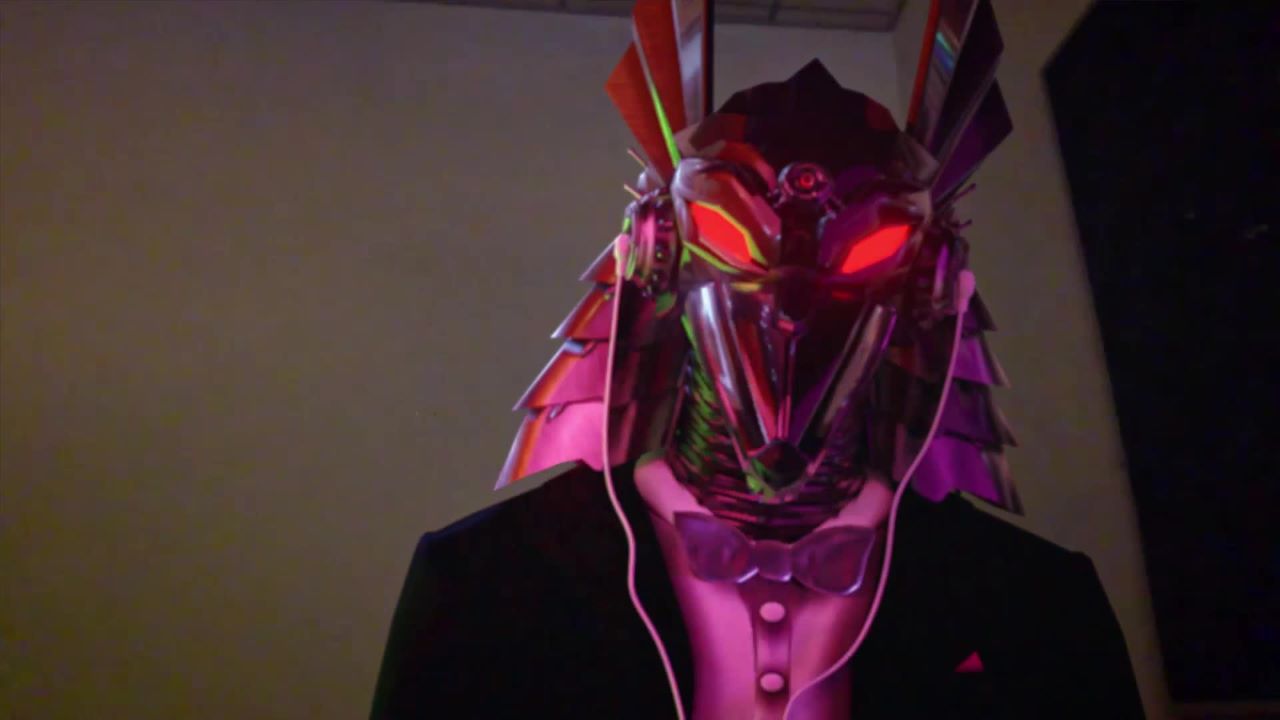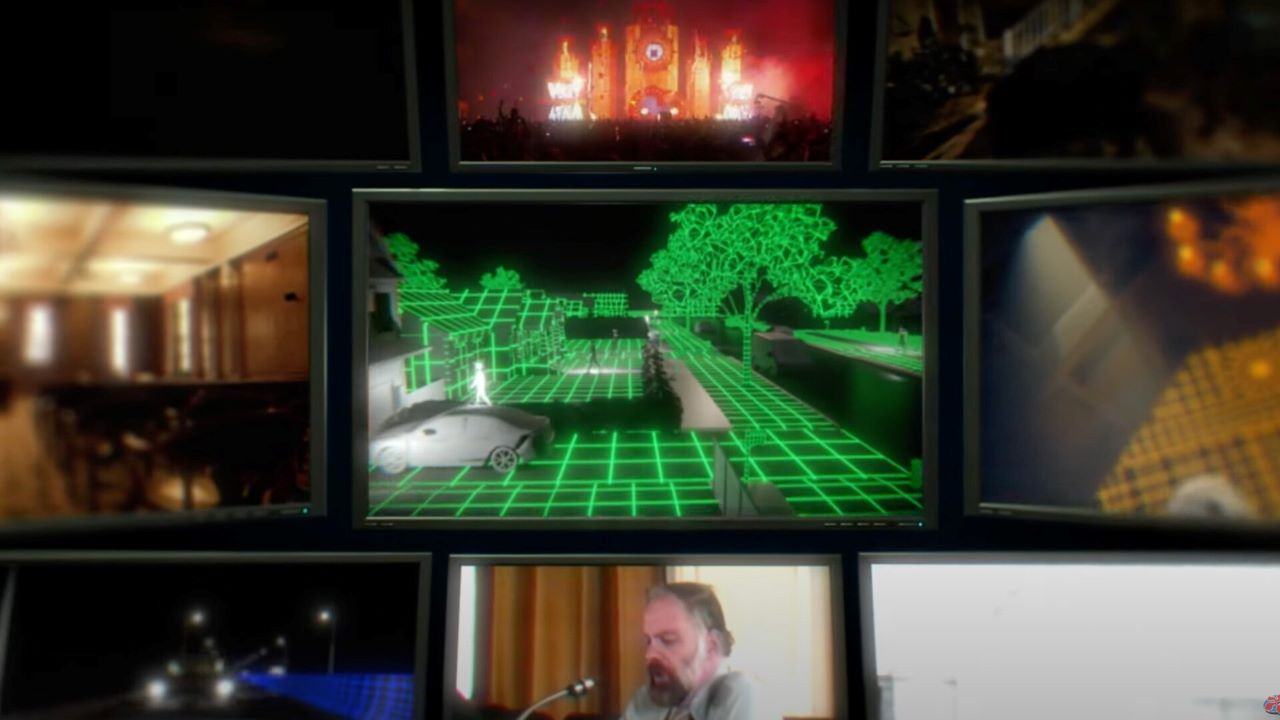This is not a review of a doco that could rewire your reality, it’s merely…A Glitch In The Matrix

A Glitch In The Matrix is a disturbing dive down the rabbit hole of simulation theory. You might want to gobble a blue pill after watching, writes Eliza Janssen.
With the very hyped Matrix: Resurrections arriving soon and much recent discussion of both Free Guy and They Live here at Flicks, you might get the paranoid feeling that we’re trying to pass on some coded message from within your device’s screen…
But don’t worry, there’s nothing more sinister going on than some timely interest in simulation theory—and Rodney Ascher’s trippy doco A Glitch In The Matrix is here to rewire us all towards understanding. Structured around a stern lecture from sci-fi granddaddy Philip K. Dick, this is an entertaining and hair-raising feature, even when it fails to chase the most compelling elements of its central philosophy.
We’re living in a golden age of conspiracy theories, and, after more time stuck in our own comfy spheres than ever before, there’s a dual sense of comfort and radical enlightenment that comes from seeing oneself as the only real person in a deceptive, constructed reality. Who’s behind it all, then, if the earth is indeed flat and the sun is a lamp and our friends and family are just NPCs? The film isn’t particularly interested in answering questions like that, but the act of questioning feels like paranoid fun the entire time.
It’s all part of an expansive progression for documentary filmmaker Ascher, whose features have thus far been committed to understanding niche cultural phobias. I’ve been a fan of his work since his evocative, spooky short about people scared silly by a corporate production logo (you can watch The S From Hell right here, it’s less than 10 minutes long). Other films dive down the rabbit hole of The Shining conspiracy theories, and the terrifying theatre of the mind that afflicts sleep paralysis victims.

So from fear of a particular piece of media, to fear of one’s own subconscious, to now examining the fear that everything except that consciousness is false. All along, Ascher has maintained an empathy for his subjects, recreating their visions in animation, horror-tinged re-enactments, or through impish sampling of pop culture clips.
In the case of A Glitch In The Matrix, that judgement-free evocation can be both frustrating, and the closest Ascher has ever gotten to his subjects: the more we learn about simulation theory, the further we are from truly understanding its most determined believers.
The talking heads are represented by elaborate ‘avatars’, like The Masked Singer if the D-list celebs started ranting about how reality is a lie rather than singing Meghan Trainor songs. Despite being filmed pre-pandemic, these trippy Zoom calls give A Glitch In The Matrix an eerily relatable quality. Haven’t we all yearned to log into an office video call that should’ve been an email as not our boring selves, but a steampunk squid-man, vaping bubbles from a CG pipe?
As visually unique as these characters are, however, some uncomfortable similarities emerge. All four subjects are (as far as one can tell?) tech-obsessed white guys with religious and/or conservative upbringings; their walls and bookshelves show a fascination for sci-fi, comics, genre stories about a heroic ‘chosen one’ with special abilities.

One man-dragon briefly indulges the idea that his faith in simulation theory comes from feeling socially awkward in a rigidly systemic world, growing up to the painful realisation that you’re not a Jedi or a wizard unless in fact you are and everybody’s hiding it from you…but this compelling diagnosis is brushed aside as quickly as it’s introduced.
That’s not to say A Glitch In The Matrix doesn’t take its solipsism seriously. A lengthy sequence in the doco’s final act recreates an alienated Matrix fan’s devolvement into homicide: he’s shocked to find the dead bodies of his parents (and his ensuing prison sentence) are undeniably real. There’s also hilarious/horrifying clips of video game carnage set to dirge-like bass music, asking us to translate GTA levels of no-stakes misanthropy into the context of our real, very consequential world.
It’s difficult to come away from Ascher’s latest odyssey with a solid grasp of the explained theories, perhaps because they’re so cosmically huge in their implications, and experiences so differ between believers. Clips from Total Recall and The Truman Show are funny and clever, but the film’s artfully-presented conspiracy is less interesting than its portraits of the kind of people who really believe this stuff.
The final moments suggest that perhaps A Glitch In The Matrix itself is some entity’s attempt to awaken us brainwashed sheeple from our cinema of lies. After that cheeky coda, you may find yourself hungry for a big blue pill to swallow.

















